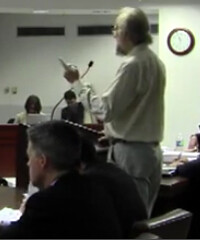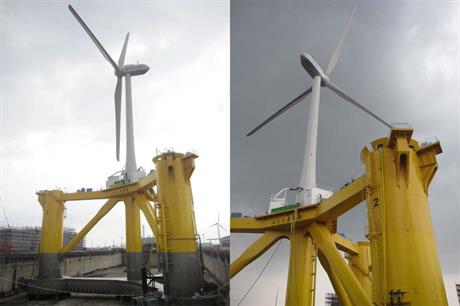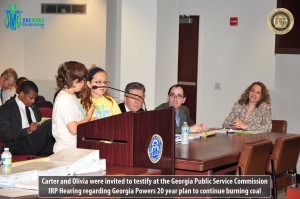The disruptive challenge electric utilities face
is like
 telephone companies faced years ago, as Edison Electric Institute recently pointed out.
Circuit switching 20 years ago is like distributed solar power and
the smart grid it needs now;
this is what I described
at
the Georgia Public Service Commission meeting Tuesday 18 June 2013.
telephone companies faced years ago, as Edison Electric Institute recently pointed out.
Circuit switching 20 years ago is like distributed solar power and
the smart grid it needs now;
this is what I described
at
the Georgia Public Service Commission meeting Tuesday 18 June 2013.
Hi, I’m John Quarterman, I’m from Lowndes County, down near the Florida line. These videos I’ve been taking are with Lowndes Area Knowledge Exchange and you’ll find them on YouTube later.
Now I’d like to commend Georgia Power for helping fund our Industrial Authority down in Lowndes County to do a strategic plan. And in the focus groups they did with that, they discovered there’s at least two things everybody wants: business, education, health care, the people in general:
- solar power
- and fast, affordable Internet access everywhere
These two things are actually related.
Through the Internet I discovered that Plant Hatch, one of the two nuclear units there has actually been down for almost an entire month this year. One of the units at Plant Vogtle has been down for many days.
Actually, Vogtle 2 was down for most of March, according to NRC data.
And this is related to the Internet in that; let’s go back 20 years, 1993. Probably most of you weren’t on the Internet, because most people weren’t. But the controversy back then is going to sound very familiar.
Big incumbent telephone companies, like AT&T, BellSouth, the regional BellSouth, like the regional power companies now. They wanted, they were arguing that you’ve got to have circuit switching to have reliable, dependable, sustainable communications.
Those words sound familiar?
They’re the same words Tom Fanning, CEO of regional electric utility Southern Company, Georgia Power’s parent company, used to describe baseload capacity generation such as from natural gas, nuclear, or coal. They’re how electric utilities think of what they’ve done for a hundred years.
OK, now what’s circuit switching. Well, it’s where you have a pair of copper [wires] or fiber optic dedicated all the way between you and me in order to have a telephone conversation. And nobody else can use those dedicated resources while that call is in process.
And that’s contrasted with the packet switching of the Internet, where lots of little packets get interleaved from various people to various people over the same twisted pair or fiber optics.
Here’s a pithy comparison from 2000, when this controversy was still live.
Designed in 1878, circuit-switched networks reserve a dedicated channel for the entire communication.
Hm, 1878, the same year electric arc lighting was installed at the Paris Exposition, leading to electric power networks in multiple cities within years.
Back to the PSC:
Twenty years later, if you still have a land line in your house, the first little bit of twisted pair, OK, that’s dedicated, but from there on it’s all packet switching. It may sound to you like the same old telephone network, but it’s not. The Internet has won completely.
OK, so nowadays we have….
Why does Edison Electric Institute say that solar power is a disruptive force for the cozy century-long baseload business model of the big utilities? Because distributed solar power generates peak power at peak load time, in the middle of the afternoon when all those air conditioners are running.
I figured the PSC knew the implication David Roberts explained in Grist:
Problem is, providing power to meet peak load is where utilities make a huge chunk of their money. Peak power is the most expensive power. So when solar panels provide peak power, they aren’t just reducing demand, they’re reducing demand for the utilities’ most valuable product.
Utilities really don’t like being treated as backup batteries for solar panels. And I was telling the PSC it’s actually even worse than that; it’s the other way around:
OK, so it seems to me is what we need is more solar power to act as a backup for when those nukes are offline. Because you may have days that are cloudy, but the cloudy day doesn’t last for an entire month. Even the night doesn’t last for an entire month.
And in addition, as the prices of solar power keep going down (solar has already achieved grid parity), we’re going to see solar get even cheaper, and we’re going to be able to generate a lot more power. We’ll be able to take; this is a little controversial, but we’ll be able to take even more coal plants offline. We’ll be able to conserve our air and water and produce jobs and profit for Georgia, and for Georgia Power.
So I’d like to ask the PSC to encourage Georgia Power to get on with a smart grid, so that Georgia Power can serve reliable, dependable, solar energy to the citizens of Georgia. Thank you.
Georgia Power’s motto:
A Citizen Wherever We Serve
As a company, we want to be judged not only by the service we provide, but also for what we do to improve the quality of life for all people in the places where we live and work.
And it is the Georgia Public Service Commission’s job to regulate utilities for the benefit of the citizens of Georgia.
Distributed solar power is an opportunity.
![]() Natural gas is not an opportunity:
natural gas is fracking polluting water and causing earthquakes
until the carbon bubble pops.
Natural gas is not an opportunity:
natural gas is fracking polluting water and causing earthquakes
until the carbon bubble pops.
Nuclear power is not an opportunity: nuclear power is Crystal River off due to concrete cracks and San Onofre shut down because of bad pipes and Kewaunee closed because it costs too much and Georgia Power’s three-legged boondoggle at Plant Vogtle that’s already 19 months late and a billion dollars overbudget. While Google already installed almost as much wind and solar power as both new Vogtle nukes are supposed to produce, and Google did it on time and on budget for less than the cost overruns at Vogtle.
Coal is not an opportunity. Even Georgia Power is shutting down coal plants.
 Distributed solar power on a million rooftops,
especially if combined with
wind off the Georgia coast
like
TEPCO is deploying off Fukushima,
connected through a smart grid,
is reliable, dependable, and sustainable power,
plus jobs and clean air and water for Georgia.
Distributed solar power on a million rooftops,
especially if combined with
wind off the Georgia coast
like
TEPCO is deploying off Fukushima,
connected through a smart grid,
is reliable, dependable, and sustainable power,
plus jobs and clean air and water for Georgia.
GA PSC has an opportunity right now to help Georgia Power lead
 the state and the region and the country out of the coal-clouded past
straight into that bright sunny future for ourselves and for
those who come after us.
the state and the region and the country out of the coal-clouded past
straight into that bright sunny future for ourselves and for
those who come after us.
-jsq
Short Link:


Pingback: Re-evaluate Plant Vogtle and move to wind and solar power –Courtney Hanson @ GA PSC 2013-06-18 | On the LAKE front
Pingback: SO’s plan to make the Southeast a net exporter of the energy from solar and wind? –John S. Quarterman @ SO 2013-05-22 | On the LAKE front
Pingback: Videos of GA PSC on Georgia Power coal plant closings @ GA PSC 2013-06-18 | On the LAKE front